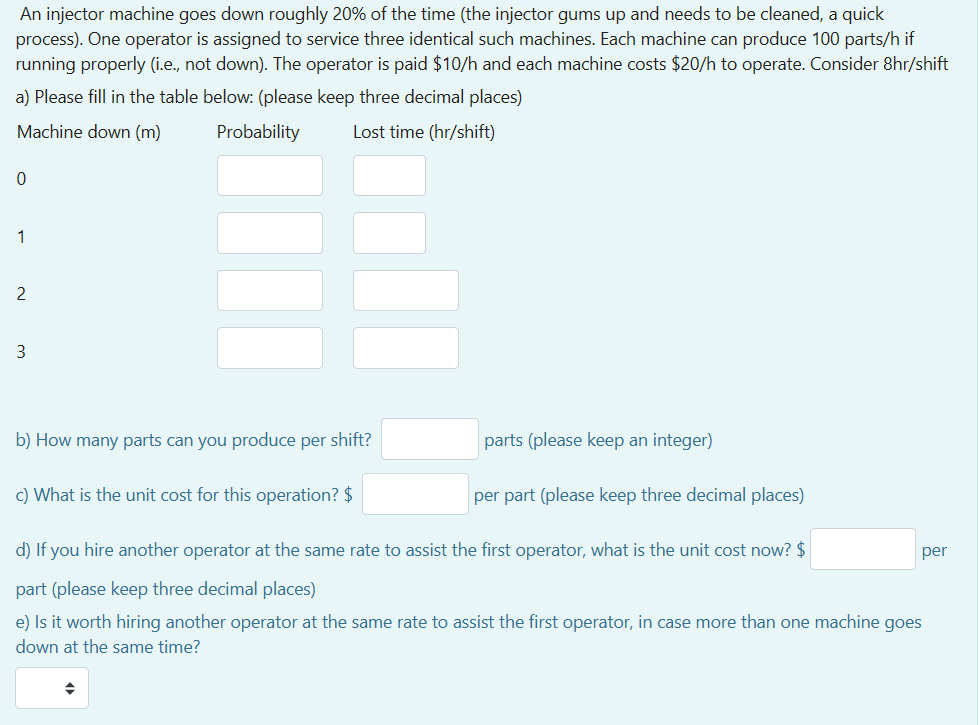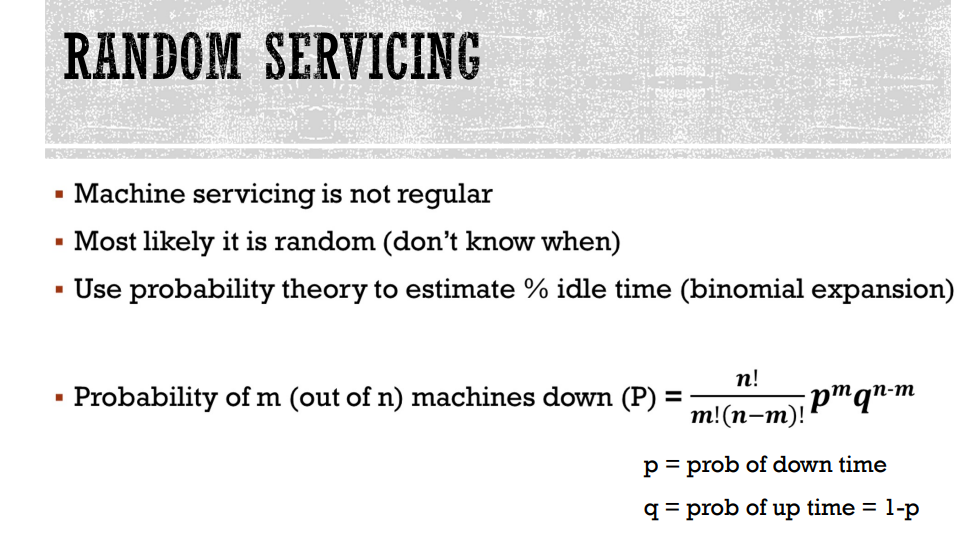An injector machine goes down roughly 20% of the time (the injector gums up and needs to be cleaned, a quick process). One operator is assigned to service three identical such machines. Each machine can produce 100 parts/h if running properly (i.e., not down). The operator is paid $10/h and each machine costs $20/h to operate. Consider 8hr/shift a) Please fill in the table below: b) How many parts can you produce per shift? c) What is the unit cost fper part for this operation? d) If you hire another operator at the same rate to assist the first operator, what is the unit cost now? e) Is it worth hiring another operator at the same rate to assist the first operator, in case more than one machine goes down at the same time?
An injector machine goes down roughly 20% of the time (the injector gums up and needs to be cleaned, a quick process). One operator is assigned to service three identical such machines. Each machine can produce 100 parts/h if running properly (i.e., not down). The operator is paid $10/h and each machine costs $20/h to operate. Consider 8hr/shift
a) Please fill in the table below:
b) How many parts can you produce per shift?
c) What is the unit cost fper part for this operation?
d) If you hire another operator at the same rate to assist the first operator, what is the unit cost now?
e) Is it worth hiring another operator at the same rate to assist the first operator, in case more than one machine goes down at the same time?


Trending now
This is a popular solution!
Step by step
Solved in 2 steps


